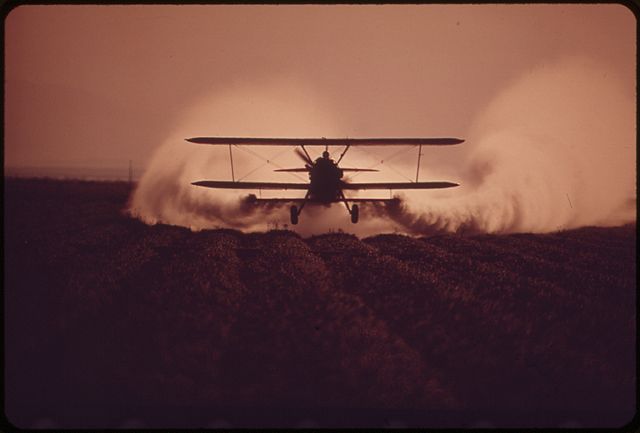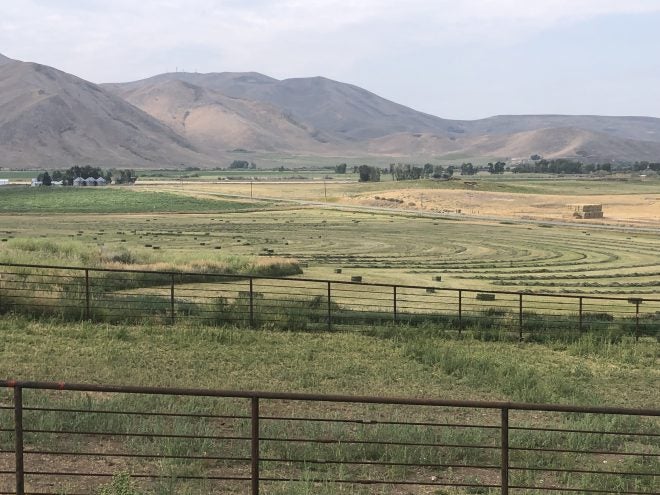Home On The Range #024: How to Deal With Chemical Trespassing
RusDs 10.01.21

Chemical Trespassing… it’s an innocuous enough sounding term, isn’t it? We think of a trespass as a temporary – though unlawful – incursion of our private property. Chemical Trespassing, however, can cause long lasting and sometimes permanent physical and fiscal damage to your rural property as well as your soil, crops, livestock, pets, and even humans. It’s nasty to deal with, and this week on “Home on the Range,” I’ll relate to you my unfortunate experiences with Chemical Trespassing as well as explain how best to hopefully prevent it, or deal with the issue when it happens to you.
Welcome to our reoccurring series of “Home on the Range.” Here, we would like to share all of our experiences for those who may be homesteading, living off the land, hunting, farming, ranching, and truly investing in nature and the great outdoors. The ability to provide for yourself and your family can be tremendously rewarding and simultaneously difficult at times. So, in “Home on the Range” we want to share our different exploits so you can learn and hopefully we can receive your feedback along the way as well.
Chemical Trespassing – A Poisonous Wind
Last year, two of my farmhands were working hard on my property when a spray truck with a boom pulled up onto the property to the east of us. The wind was blowing out of the east that day. The truck driver saw my workers, but the inconsiderate, numbskull started spraying anyway leaving my workers choking on a cloud of weed killer. Needless to say, we lit into the owner of the operation next door, and he assured us it wouldn’t happen again. And it didn’t happen again – with a truck, that is.
The following spring, we noticed a crop duster come in low over our farm, again with the wind blowing out of the east, and release pellets early, right over my produce garden. It turned out to be a form of rat poison, and we lost a month on the garden by having to water it out. If I hadn’t seen the plane do it, I wouldn’t have known, and would have gone about my business as usual. This particular mineral would have nauseated me and possibly killed my dog. Again, we contacted the neighboring operator about the issue; however, this is not the only step we should have taken. Having been burned by chemical overspray twice now, I did some research into what to do the next time this happened to me.
Chemical Trespassing – What to Do
A key component of how to deal with chemical trespassing is documentation. Witness statements, photos and video both of the incident and the impact are essential. Knowing which agencies to call is also essential. The local police likely don’t know how to deal with a crop-duster buzzing your livestock and dumping unwanted spray on your crops, but the FAA and your state department of agriculture sure do. It’s also important to find out if it’s a contractor applying the chemical. This is likely the case, as most small and medium farms don’t have their own applicator equipment on hand. Then, the state can investigate the contractor, and you can pursue the proper party for redress of grievances.
Sure enough, it happened again, but this time we were prepared. We took photos and video, documented as much as possible, filed reports with all the applicable agencies, and were happy to see appropriate action taken.
Chemical Trespassing – Head it Off at the Pass
You can’t always have success in this arena, as different operations can lease out ag land from time to time, and some owners may be non-receptive, but be sure to talk to your farm neighbors about your operation, what your expectations are as to chemical trespass, and request that they respect your property. The best way to deal with the problem is to try and prevent it in the first place. In my case, I did that when I started up operations, but two neighboring properties changed hands since then and that’s what ended up causing issues for me. Learn from my mistakes, stay on top of who owns/leases what, and you maybe have better success.
Chemical Trespassing – Don’t be a Part of the Problem
Most importantly, don’t be a trespasser! If you do choose to use chemicals in your ag operation, do not apply them recklessly. Leave a significant buffer zone by any property line. Don’t apply material on windy days – you’re only wasting money if you overspray! Be a good neighbor and be sure to make any contractor you use to apply such chemicals aware of your standards and stipulations. Just because it works on your farm doesn’t mean the farm next door wants that on their crops. Your weed killer might well dehydrate your neighbor’s crop. It may ruin them and you financially.
